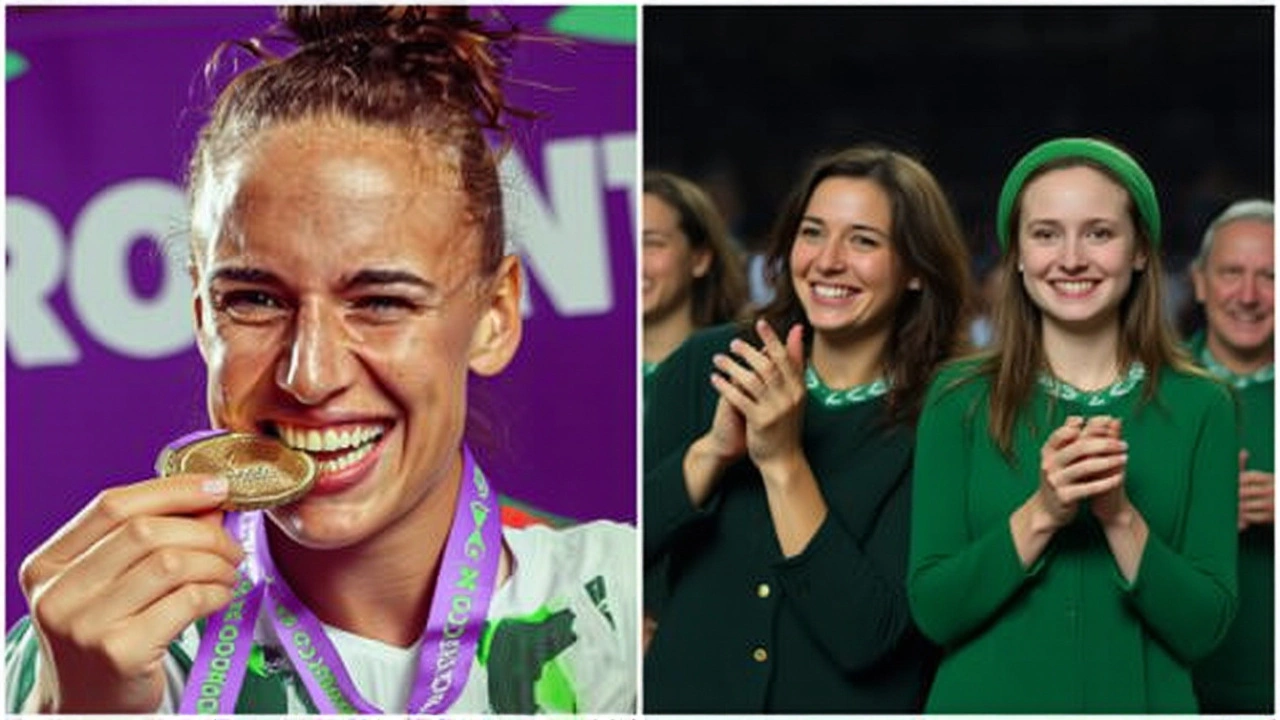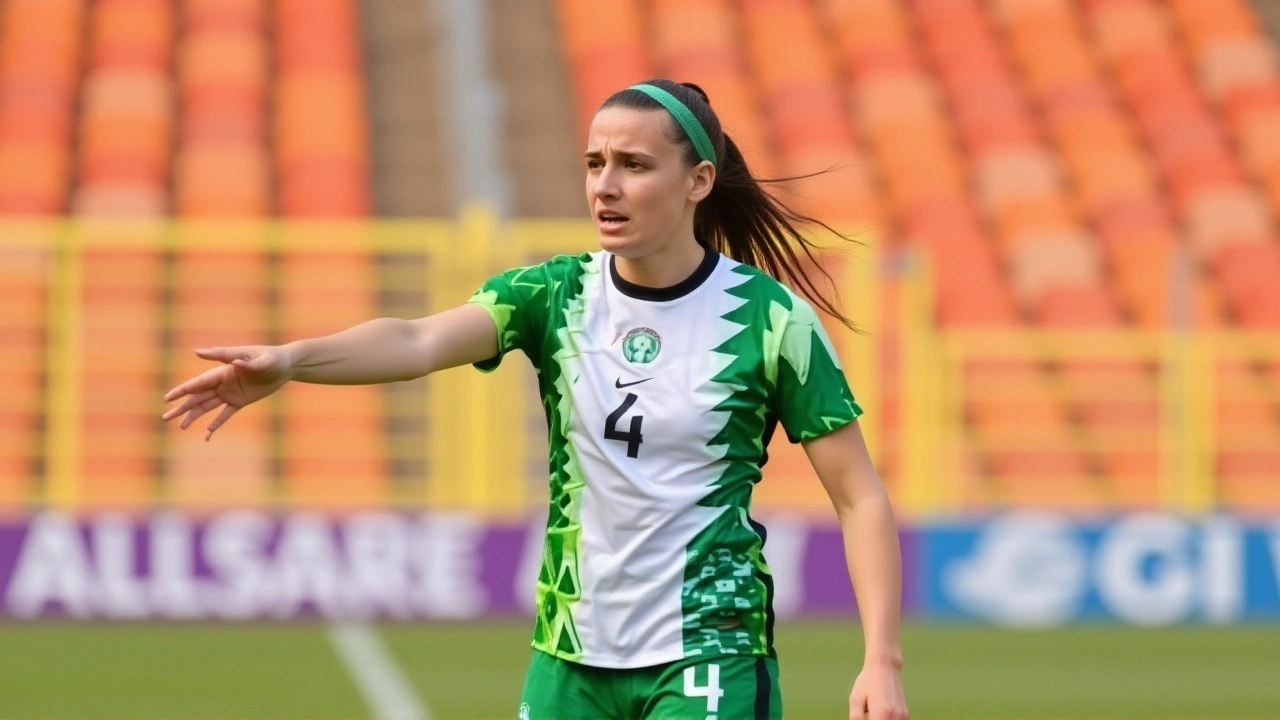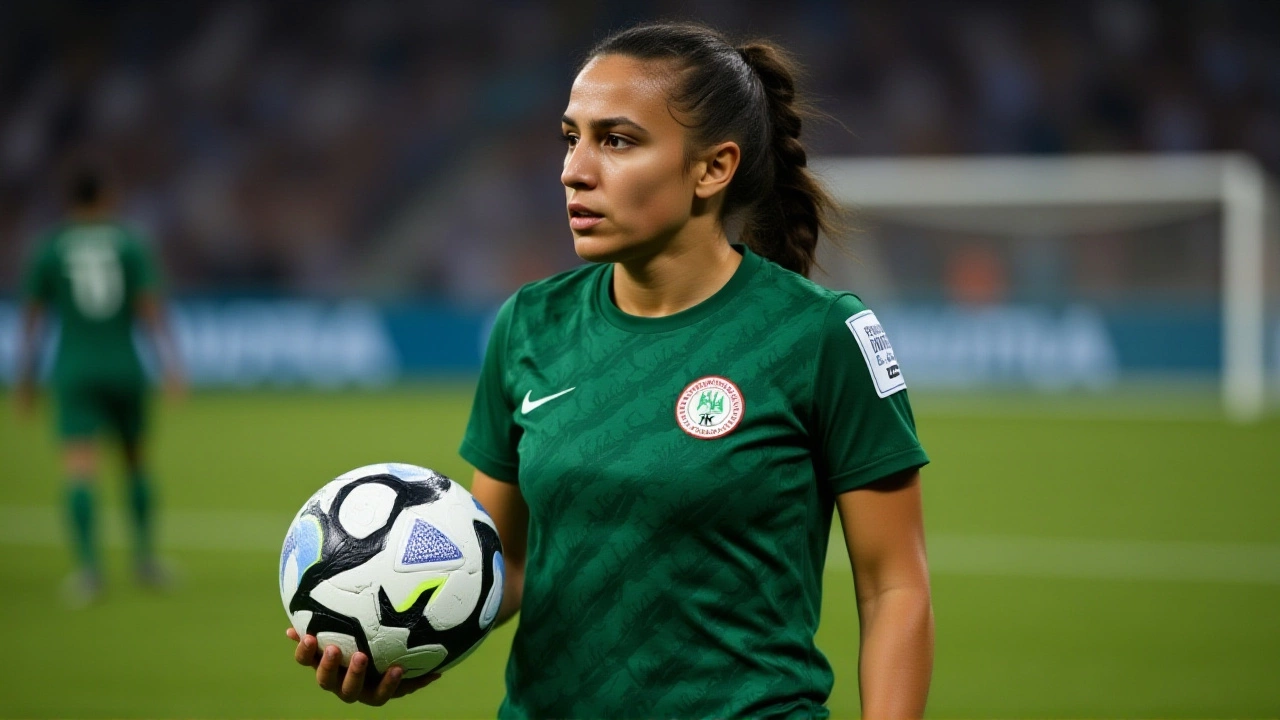When Ashleigh Plumptre, defender for the Nigeria Super Falcons signed with Al‑Ittihad in September 2023, the move sent shockwaves through the women's game. The transfer, finalized just weeks after Nigeria’s exit from the 2023 FIFA Women’s World Cup, made Plum‑ture the first former Women’s Super League (WSL) player to head for the Saudi Arabian league. She says the decision feels like stepping into a peace bubble, a feeling that reshapes how many view the Kingdom’s emerging football scene.
How the move fits into a broader history
Saudi Arabia’s women’s competition only turned professional in 2022, when the Saudi Women’s Pro League opened the door for clubs to sign up to six foreign players each. The model mirrors the men’s league that attracted stars like Cristiano Ronaldo when he joined Al‑Nassr in December 2022. Yet no woman from Europe’s top tier had made the leap—until Plumptre.
Before heading for Riyadh, Plumptre spent three seasons with Leicester City in the WSL, helping the club secure its first top‑flight win in 2022. Offers flooded in from clubs across the UK, the United States and mainland Europe, but a phone call from her father changed the script. "Dad said there was a team in Saudi Arabia interested," she told BBC Sport. "My first reaction was ‘no’, but I wanted to give them a chance.’"
Life in the Kingdom: A personal portrait
Plumptre paints a picture that feels oddly domestic. She describes loading bags into an elevator at a gated compound, leaving her car idling with keys inside to make a quick supermarket run. "It’s a safety net you don’t always see back home," she said. "I feel calmer here than I did in the UK, and my family does too." The sentiment resonates with many expatriates who live in self‑contained communities, yet it clashes with the world’s view of Saudi Arabia’s human‑rights record.
Her remarks sparked a fresh round of criticism, especially regarding the country’s laws on same‑sex relations and broader gender freedoms. "The reaction was not good at all," Plumptre admitted. "People around Leicester thought I was representing something they didn’t value, and that hurt them deeply." Still, she insists the move does not equal endorsement of every Saudi policy. "I can’t agree with some of the views the Western world has of this place, but I also can’t pretend it’s perfect," she added.

Reactions from the football world
Among the most vocal critics were former teammates from Leicester and activists within the women’s game. One former teammate, who asked to remain unnamed, said: "It felt like a betrayal of the fight for women’s rights on the pitch and off it." Conversely, the Nigeria Football Federation hailed her decision as a personal choice that doesn’t diminish her contributions to the national side.
Speaking on the sidelines of Nigeria’s WAFCON triumph, Coach Rita Nwadike praised Plumptre’s professionalism: "She brings experience from the biggest stages – the World Cup, the league in England – and that lifts the whole squad.”
Impact on women’s football and the market
Since Plumptre’s arrival, the Saudi league has announced two more foreign signings, including a forward from the United States and a midfielder from Japan. Analysts say the trend could open up financial streams for players who previously faced limited wages in Europe’s second‑tier clubs.
Yet the financial lure isn’t the headline. Plumptre’s own words make clear that the sense of security and a new cultural experience mattered more. "I’m not here just for the paycheck," she said. "I’m here to play, to grow, and to see what this part of the world can become for women’s sport."
Her move also sparked a quiet debate inside FIFA about how to balance the growth of women’s leagues with concerns over host‑country rights. A committee meeting in October 2024 will review the Saudi league’s compliance with FIFA’s women’s football development standards.

What’s next for Plumptre and the league?
Plumptre is set to feature in the upcoming season opener against Al‑Hilal, a match expected to draw a record crowd for women’s football in Riyadh. Her performance will likely influence whether more high‑profile WSL players consider the move.
On the international stage, Plumptre helped Nigeria qualify for the 2024 Paris Olympics and lift the WAFCON trophy for a historic tenth time. The defender’s dual success—club stability in Saudi Arabia and continued national team impact—could become a case study for future talent migration.
- First former WSL player to join a Saudi club – September 2023
- Al‑Ittihad signed one of the league’s six allowed foreign players
- Plumptre helped Nigeria win its tenth WAFCON title in 2024
- She also played a key role in Nigeria’s qualification for the 2024 Paris Olympics
- The Saudi Women’s Pro League became fully professional in 2022
Frequently Asked Questions
How does Plumptre’s move affect other WSL players?
Her transfer shows that Saudi clubs can lure talent beyond the men’s game, giving WSL players a new destination that offers professional contracts and a safe living environment. It may encourage others weighing limited playing time in Europe to explore the Middle East as a viable option.
What were the main criticisms of her decision?
Critics focused on Saudi Arabia’s record on women’s rights and LGBTQ+ issues, arguing that joining a club there could be seen as tacit approval of the regime’s policies. Fans in Leicester also felt abandoned, believing she turned her back on the fight for better conditions in Europe.
Has the Saudi Women’s Pro League benefited from her presence?
Attendance at Al‑Ittihad’s matches rose by roughly 30% after her debut, and TV viewership across the GCC saw a modest boost. Her professionalism is also credited with raising training standards for local players.
What does Plumptre say about her future plans?
She plans to stay with Al‑Ittihad for at least two more seasons, focusing on helping the club compete for the league title while continuing to serve the Super Falcons in upcoming internationals, including the Paris Olympics.
Will her move influence FIFA’s stance on women’s leagues in Saudi Arabia?
FIFA’s upcoming committee will likely reference her case when assessing compliance with development standards. If the league continues to attract talent like Plumptre, it could strengthen arguments for broader support of Saudi women’s football.
